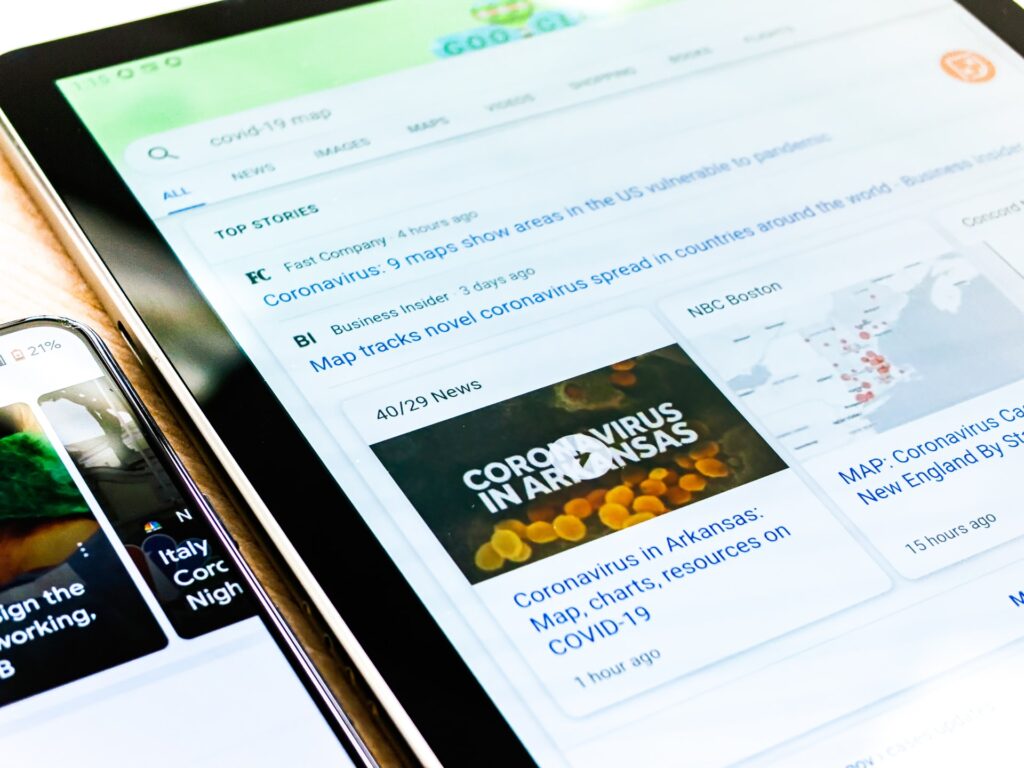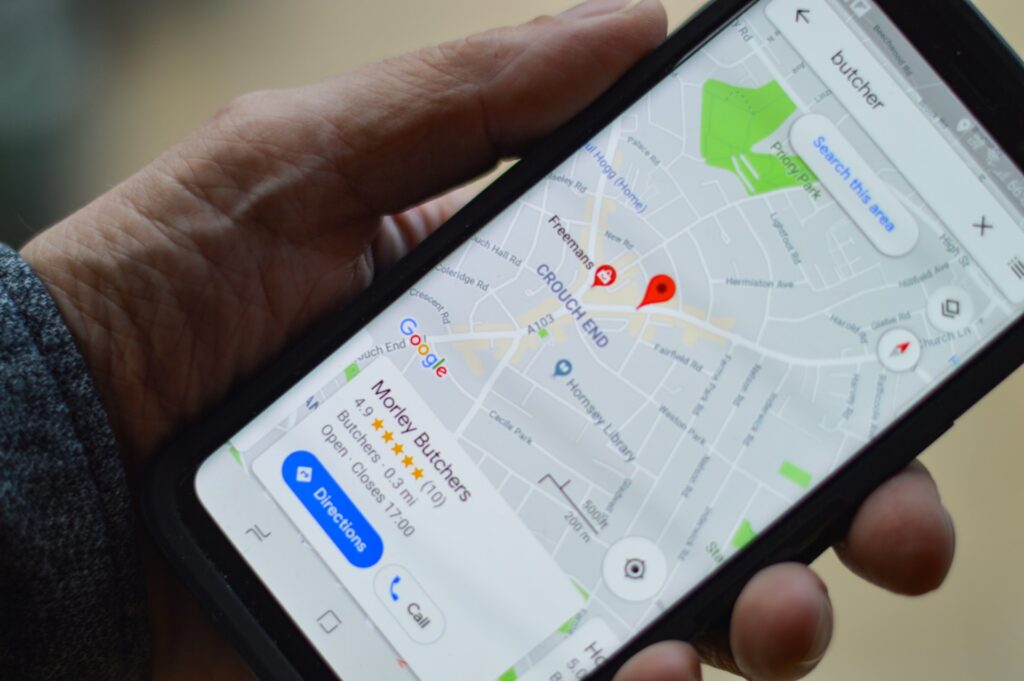Do you understand the difference between organic SEO and local SEO?
The rise of technology and the need for digital marketing has shifted the business landscape in many ways. While some companies welcome these opportunities with open arms, others are more skeptical and feel intimidated by non-traditional marketing methods.
Digital marketing experts have their fingers on the pulse and are able to offer professional guidance. Investing in SEO is essential for the success of any business with an online presence, along with content marketing and social media.
But what is SEO, and why is there more than one type?
Search Engine Optimization (SEO) refers to the various strategies involved in improving your website’s visibility on search engines. Increased visibility pushes your business higher in search results and asserts your business as an authority in the industry.
If you’re wondering which form of SEO to optimize for, then you’ve come to the right place. Let’s dive into the differences and similarities of organic SEO and local SEO, and how they can benefit your business.

Understanding Local SEO vs. Organic SEO
If you want to make the most of your digital marketing efforts, then it’s important to understand the nuanced differences between various SEO methods. This understanding will help map a successful strategy.
Organic SEO is the process of naturally obtaining placement in search engine results. This is achieved through various proven strategies such as targeting keywords, optimizing websites, backlinking services, and more.
Paid advertising is a popular marketing strategy, with the global pay-per-click (PPC) software market size expected to reach USD 28.62 billion by 2027. On the flip side, organic SEO is a cost-effective alternative. The initial investment continues to reap results even after the work is done. Work done behind the scenes can drive traffic to the business website and lead to desired conversions.
Local SEO is the process of optimizing your online presence to appear in localized searches.
Small, local businesses benefit greatly from local SEO practices. Local SEO incorporates the same tactics as organic SEO but has an increased focus on specific geographic areas.
There are a few key similarities between organic SEO and local SEO. For example, both strategies target keywords that match user intent and measure results through conversions, including website clicks. So, why are they considered different strategies?
Differences Between Local SEO and Organic SEO
While local SEO and organic SEO both pivot around the same concept, there is one major difference that distinguishes them.
Local SEO includes a geographical component and includes a location along with the targeted keywords. Organic SEO does not.
Research shows that 50% of users who perform a local search on their smartphone visit a physical store within a day. But what if you don’t have a physical store? Is local SEO still valuable?
The key differences between the two strategies can be summarized by looking at specific results and user intent.
Organic SEO can help businesses in the following ways.
- Targets customers from everywhere, including online customers
- Searches are made from both desktop and smart devices
- Keywords are used to find relevant information
- Strategy leads to the discovery of website pages
- The urgency of the search is unknown
- Successful conversions are measured by website clicks and online purchases
- Top search results receive higher conversion rates
- Suitable for businesses that generate sales through an online presence
In contrast, local SEO works as follows.
- Targets local customers
- Searches are mostly done on smart devices
- Keywords and local components are used to find relevant locations and nearby products or services
- Strategy leads to the discovery of locations, reviews, and featuring in the three-pack listing
- Customers are typically looking for an urgent solution
- Conversions are measured by route planning, website clicks, and offline purchases
- Much higher conversion rate
- Suitable for local businesses with physical stores

The Best Use of Organic SEO
Businesses that rely on online sales and services benefit most from organic SEO. The strategy helps build authority within an industry and rank for specific terms. In this instance, targeting a specific location could lose business as potential customers eliminate the company as a potential provider.
Organic SEO is also useful for franchise businesses that are located in several geographical regions. With this in mind, franchise businesses shouldn’t entirely neglect local SEO.
Consider the following ways that businesses can benefit from organic SEO efforts.
- Generate more traffic to the business website
- Become an authority in the industry
- Affordable alternative to advertising
- Measurable strategy with potential to scale
Organic SEO in Action
Imagine that you run a business that sells organic beauty products online. The goal of the business is to make as many sales as possible, across a large geographical region. In this instance, you hope to rank for search terms such as “best organic face wash” or “vegan-friendly moisturizer”.
By including a local SEO term, you could eliminate potential customers based in outlying regions. Instead, your strategy should target aspects of your business that describe your niche and unique selling point (USP).
There are several parts that play an integral role in a successful SEO strategy. By implementing these elements, businesses can reap the rewards of a streamlined SEO strategy.
The following elements play a key role in organic SEO.
- Keyword research and incorporating to help match user intent
- Technical SEO in the website’s structure (such as meta-tags, indexing, etc)
- Prioritize page speed and loading time
- Ensure the website is mobile-friendly
- Improve user experience (UX)
- Review analytics for issues and opportunities
- Content marketing and creation
- Link building to ascertain authority with the search engine

The Best Use of Local SEO
Brick and mortar businesses benefit most from local SEO objectives. Local SEO increases the visibility of businesses that are physically accessible by users. Marking your business as a local company increases relevance and boosts brand awareness.
Keep in mind that online reputation management is an important part of local SEO. Research shows that nine out of ten consumers read reviews online before making a purchase. Most of the local SEO listings include reviews and ratings, keeping the profile of the business updated and relevant.
By implementing various strategies, businesses are able to reap the benefits of their hard work. For example, you can reach consumers that are actively searching for your product or service and are actually in the area.
The help of route planning gets the customers to your door, and the chance of a sale is increased. Ratings and reviews help to establish trust and credibility, all the while saving money that would otherwise be spent on PPC.
Local SEO in Action
Imagine a windy day blowing your shaggy hair into your face. It’s time for a trim. You open your phone and google “barbershop near me”. The search results list local barbershops along with their Google review rating, opening hours, and distance from your current location.
Perhaps you’ve never heard of “Fernando’s Hair” but the business has a good rating and is within walking distance – and they’ve just earned another customer.
This is the power of local SEO.
Local SEO doesn’t only help users determine the physical location of businesses, but also the opening hours and quality of service.
While on-page and technical SEO is still important for the company website, extra effort needs to be made investing in specific elements. For example;
- Create a profile for location platforms such as Google My Business (GMB), Apple Maps, and other mapping platforms
- Keep your name, address, and phone information up to date and consistent across all platforms – including social media platforms
- Include your business in local business directories
- Invest in reputation management where customers leave reviews and ratings
The geographical component adds a unique element to search rankings. It adds to the sense of urgency and convenience. Strategic targeting can lead to notable conversions and significant ROI.
The main goal is to appear in the local 3-pack. This method of listing features a prominent map display including Google’s selection of the top three most relevant businesses for the search term and user’s location.

Include Organic and Local SEO in your Digital Marketing Strategy
At the end of the day, you need to consider user intent and how your business meets the needs of the consumer. Online companies benefit most from organic SEO, while physical stores and services gain an advantage from local SEO.
When implemented correctly, a combination of organic and local SEO can work wonders for your business.
Expert SEO services, such as those offered by Waller Digital, combine objectives for maximum effect, leading to a stronger overall online presence, excellent customer retention, and a strategic approach to customer service and communication.
Contact us to find out more about our professional services, or follow us on social media to stay up to date on SEO in Northwest Arkansas and beyond.



